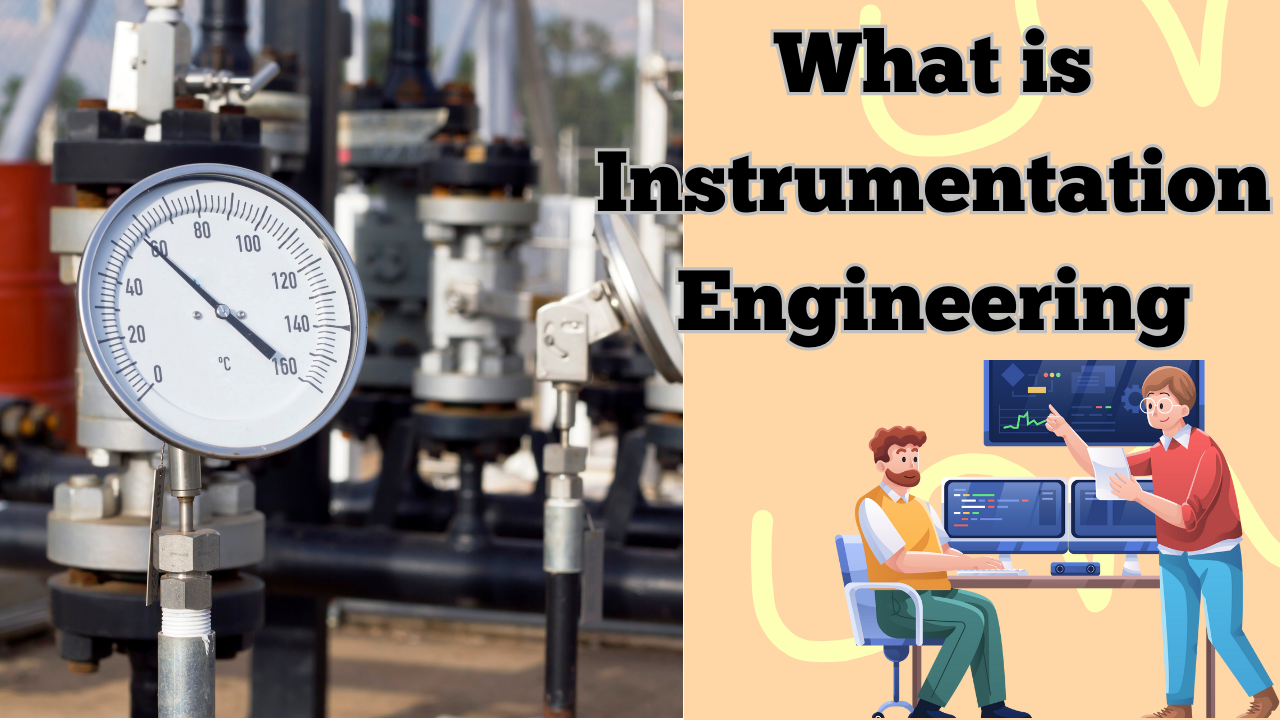Instrumentation Engineering, a multidisciplinary branch of engineering, integrates principles from various domains, including physics, electronics, and control systems. Within this field, a myriad of subjects exist, each contributing uniquely to the overall understanding of measurement and control. This article delves into the pivotal subjects within Instrumentation Engineering, evaluating their significance and application, thereby addressing a common inquiry among aspiring engineers: “Which subject is better in Instrumentation Engineering?”
To begin, it is imperative to recognize the foundational subjects that constitute Instrumentation Engineering. These subjects include, but are not limited to, Measurement Techniques, Control Systems, Signal Processing, and Sensors and Transducers. A nuanced exploration of these areas reveals not only their individual importance but also how they interrelate, forming a cohesive structure of knowledge essential for proficient practice.
Measurement Techniques stand at the forefront of Instrumentation Engineering. This discipline entails the methodologies employed to quantify physical quantities such as temperature, pressure, and flow rate. The essence of precise measurement cannot be overstated; it is the bedrock upon which reliable data is gathered and analyzed. Within this realm, students engage in the study of metrology, calibration, and sensor characteristics. The accuracy and precision of measurements directly influence downstream processes in industrial applications. For example, in a chemical manufacturing plant, minute discrepancies in temperature measurement can lead to catastrophic failures or suboptimal product quality. Therefore, a comprehensive understanding of Measurement Techniques is not merely academic but critical for practical applications.
Following closely is the domain of Control Systems, which deals with the automated regulation of processes. This subject equips engineers with the necessary tools for designing systems that can autonomously manage variables, ensuring system stability and performance. Techniques such as PID (Proportional-Integral-Derivative) control are extensively taught, providing students with the frameworks to create sophisticated control algorithms. The allure of Control Systems stems from their ubiquitous presence in technology today—from the automotive industry, where traction control systems enhance vehicle safety, to aeronautics, where autopilot systems guarantee efficient navigation. The ability to influence systems dynamically showcases the profound impact of control engineering.
Furthermore, Signal Processing plays a critical role in Instrumentation Engineering. This subject encompasses the analysis, interpretation, and manipulation of signals—both analog and digital. Understanding signal characteristics, noise reduction techniques, and filtering processes allows engineers to effectively extract meaningful information from raw data. In an age dominated by data, the ability to process and analyze signals has far-reaching implications, especially in fields such as biomedical engineering, telecommunications, and robotics. The sophistication of algorithms developed in this domain often beholds a certain elegance, merging computational prowess with practical utility.
Sensors and Transducers form yet another essential pillar within Instrumentation Engineering. These devices facilitate the interaction between the physical world and the electronic domain, converting measurements into readable outputs. The diversity of sensors—from thermocouples measuring temperature to accelerometers tracking motion—highlights the innovation within this field. A subject dedicated to understanding these devices reveals not only the technology behind them but also the physics governing their operation. The fascination with Sensors and Transducers lies in their role as enablers of modern technology, bridging analog phenomena with digital interpretation.
As one navigates through these core subjects, the question arises: Which is the superior subject in Instrumentation Engineering? The answer is inherently subjective and largely dependent on an individual’s inclination towards specific areas of interest or career aspirations. Several factors must be considered, including the complexity of the subject matter, the potential for innovation, and the immediate applicability to industry challenges.
For individuals drawn to fundamental principles and rigorous applications, Measurement Techniques might resonate profoundly. Those who thrive on innovation and problem-solving may find Control Systems to be their forte, as it reflects a perfect marriage of theory and real-world application. Conversely, students intrigued by the intricacies of data and analytical methods may gravitate toward Signal Processing, a field with ever-expanding horizons. Lastly, those fascinated by the tangible aspects of engineering, particularly interfacing with the physical world, will likely appreciate the ingenuity behind Sensors and Transducers.
Beyond personal interest, the landscape of technological advancement cannot be ignored. With the advent of Industry 4.0, the proliferation of the Internet of Things (IoT), and increased automation, all subjects within Instrumentation Engineering are undergoing rapid evolution. Engineers trained in these disciplines are becoming pivotal in steering industries toward greater efficiency and innovation. Therefore, the better subject can also be interpreted through the lens of market demand and future trends. The interconnectedness of these fields implies that a well-rounded engineer who understands the synergies between these subjects might be better positioned to lead in the ever-evolving technological arena.
In conclusion, while the question of which subject is better in Instrumentation Engineering varies from individual to individual, it is crucial to acknowledge the foundational synergy among Measurement Techniques, Control Systems, Signal Processing, and Sensors and Transducers. Each area offers unique insights and skills that are indispensable in contemporary engineering practice. Ultimately, the journey through Instrumentation Engineering should be guided by personal passion, career objectives, and a recognition of the interplay among these vital subjects. As technology continues to march forward, the ability to integrate knowledge across disciplines will undoubtedly stand as a hallmark of success in this dynamic field.










